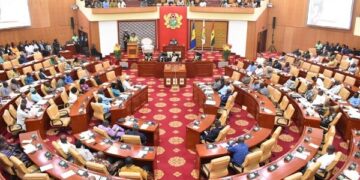The General Secretary of the National Democratic Congress (NDC), Fifi Fiavi Kwetey, has passionately challenged members of the party in the Volta Region to take their affiliation with the NDC as akin to a religious commitment.
Expressing concerns about a perceived reluctance among some Volta youth to engage in party activities actively, Kwetey emphasized the imperative to initiate operations that would garner more support.
During a gathering with supporters, Kwetey declared, “It looks as if it is wrong for us Volta people to take the NDC as a religion. There is nothing shameful about that.”
He urged the Volta members to shed any hesitation in embracing the party’s principles and initiatives.
Addressing a potential generational gap, Kwetey acknowledged the sentiment among some younger individuals in the region who shy away from active involvement in the NDC due to a perceived sense of self-pride.
He remarked, “Because some of our young people from Volta think it is self-pride to say, ‘as for us, we are not like our fathers; we believe we should not do anything because of pride,” emphasizing the importance of instilling a sense of responsibility in the youth.
While acknowledging the imperfections of the party, Kwetey underscored the collective obligation to ensure that the younger generation actively contributes to shaping the party’s future.
“This party may not be perfect; it may not be a party that has given out every single thing that we want. But it is our responsibility to ensure our children renew their role in this foundation to make it better,” he asserted.
Drawing a parallel with the political landscape in the Ashanti Region, the General Secretary noted the steadfast commitment of NPP supporters, describing it as akin to religious devotion.
“They understand their party is the NPP, and nothing could change that. Somehow, they appreciate that what they are going to do is for the party to succeed,” he observed.
Calling for introspection, Kwetey likened the party’s status to a religion and stressed the importance of actively participating in its evolution.
“This has become like a religion, and if your religion does not have a message, it is your responsibility to make sure you fix it and bring changes within the religion,” he urged.
Sharing his experience of switching religious affiliations, Kwetey emphasized the importance of loyalty to one’s chosen path. “So never leave your party; that is your ‘religion’ you must obey,” he concluded.




















































































